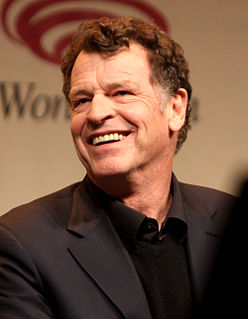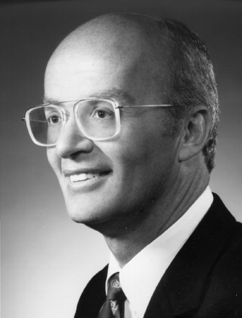Top 1200 Philosophy Of Science Quotes & Sayings - Page 7
Explore popular Philosophy Of Science quotes.
Last updated on November 15, 2024.
Accurate and just reasoning is the only catholic remedy, fitted for all persons and all dispositions; and is alone able to subvert that abstruse philosophy and metaphysical jargon, which, being mixed up with popular superstition, renders it in a manner impenetrable to careless reasoners, and gives it the air of science and wisdom.
There is a philosophy that says that if something is unobservable -- unobservable in principle -- it is not part of science. If there is no way to falsify or confirm a hypothesis, it belongs to the realm of metaphysical speculation, together with astrology and spiritualism. By that standard, most of the universe has no scientific reality -- it's just a figment of our imaginations.
We may say, in a broad way, that Greek philosophy down to Aristotle expresses the mentality appropriate to the City State; that Stoicism is appropriate to a cosmopolitan despotism; that stochastic philosophy is an intellectual expression of the Church as an organization; that philosophy since Descartes, or at any rate since Locke, tends to embody the prejudices of the commercial middle class; and that Marxism and Fascism are the philosophies appropriate to the modern industrial state.
It was while I was studying philosophy that I came to understand. . . that it is no sign of moral or spiritual strength to believe that for which one has no evidence, neither a priori evidence as in math, nor a posteriori evidence as in science. . . . It's a violation almost immoral in its transgressiveness to shirk the responsibilities of rationality.
The most perfect philosophy of the natural kind only staves off our ignorance a little longer: as perhaps the most perfect philosophy of the moral or metaphysical kind serves only to discover larger portions of it. Thus the observation of human blindness and weakness is the result of all philosophy, and meets us at every turn, in spite of our endeavours to elude or avoid it.
Gradually, ... the aspect of science as knowledge is being thrust into the background by the aspect of science as the power of manipulating nature. It is because science gives us the power of manipulating nature that it has more social importance than art. Science as the pursuit of truth is the equal, but not the superior, of art. Science as a technique, though it may have little intrinsic value, has a practical importance to which art cannot aspire.
The true man of science will know nature better by his finer organization; he will smell, taste, see, hear, feel, better than other men. His will be a deeper and finer experience. We do not learn by inference and deduction and the application of mathematics to philosophy, but by direct intercourse and sympathy. It is with science as with ethics,--we cannot know truth by contrivance and method; the Baconian is as false as any other, and with all the helps of machinery and the arts, the most scientific will still be the healthiest and friendliest man, and possess a more perfect Indian wisdom.
The progression of physical science is much more connected with your prosperity than is usually imagined. You owe to experimental philosophy some of the most important and peculiar of your advantages. It is not by foreign conquests chiefly that you are become great, but by a conquest of nature in your own country.
Should a reasonable person not demand that philosophy should not be foolishly purveyed before people incompetent to see the point of it, as pearls before swine? For Nietzsche is utterly correct: philosophy is only for the healthy and whole-minded, the sick it has always only made even sicker. By means of philosophy they dig themselves even deeper into their pathetic delusions.
Science and vision are not opposites or even at odds. They need each other. I sometimes hear other startup folks say something along the lines of: 'If entrepreneurship was a science, then anyone could do it.' I'd like to point out that even science is a science, and still very few people can do it, let alone do it well.
It is science alone that can solve the problems of hunger and poverty, of insanitation and illiteracy, of superstition and deadening custom and tradition, of vast resources running to waste, or a rich country inhabited by starving people... Who indeed could afford to ignore science today? At every turn we have to seek its aid... The future belongs to science and those who make friends with science.
A precondition for being a science fiction writer other than an interest in the future is that, an interest - at least an understanding of science, not necessarily a science degree but you must have a feeling for the science and its possibilities and its impossibilities, otherwise you're writing fantasy. Now, fantasy is also fine, but there is a distinction, although no one's ever been able to say just where the dividing lines come.
Another of the qualities of science is that it teaches the value of rational thought, as well as the importance of freedom of thought; the positive results that come from doubting that all the lessons are true... Learn from science that you must doubt the experts. As a matter of fact, I can also define science another way: Science is the belief in the ignorance of experts.
I think . . . that philosophy has the duty of pointing out the falsity of outworn religious ideas, however estimable they may be as a form of art. We cannot act as if all religion were poetry while the greater part of it still functions in its ancient guise of illicit science and backward morals. . . .
Science fiction is a weird category, because it's the only area of fiction I can think of where the story is not of primary importance. Science fiction tends to be more about the science, or the invention of the fantasy world, or the political allegory. When I left science fiction, I said "They're more interested in planets, and I'm interested in people."
My parents didn't know much science; in fact, they didn't know science at all. But they could recognize a science book when they saw it, and they spent a lot of time at bookstores, combing the remainder tables for science books to buy for me. I had one of the biggest libraries of any kid in school, built on books that cost 50 cents or a dollar.




















































